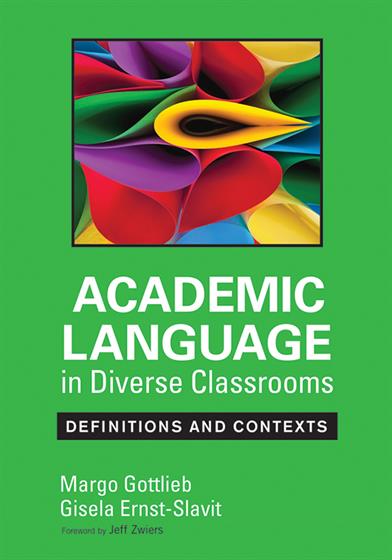Foreword
Preface
Acknowledgements
About the Authors
In the Beginning….
1. What is Academic Language?
The Role of Language in Schooling and Beyond
Different Registers
The Nature of Academic Language
Evolving Perspectives of Academic Language
Academic Language Versus Social Language Perspectives
Systemic Functional Linguistic Perspectives
Language Skills Perspectives
Sociocultural Perspectives
Language as Action Perspectives
Academic Language Learning as a Developmental Process
Considerations for Students with Disabilities
Oral and Written Languages
Oral Language as a Vehicle for Promoting Academic Language Development
Oral Language as a Bridge to Literacy
Multiliteracies and Multimodalities as Sources of Academic Language
Raising Awareness of Academic Language
Academic Language and Social Justice
For Further Thinking
2. What Are the Dimensions of Academic Language?
Identifying Academic Language Within and Across Content Areas
Analyzing Academic Language Within Discourse
Balance Between Informational and Literary Texts
Differences Between Nonfiction and Informational Texts
Examining Sentence-Level Structures
Language Functions as Expressions of Sentence-Level Meaning
Identifying Vocabulary--Words, Phrases, and Expressions
Development of Academic Vocabulary
Teaching Academic Vocabulary in Authentic Contexts Through Meaningful Interactions
Vocabulary Instruction for English Language Learners
For Further Thinking
3. How Do Standards Define and Shape Academic Language Use?
The Impact of the New Standards on Shaping Academic Language
Bringing Standards Together: Content Learning Through Language and Language Learning Through Content
Content and Language Learning for English Language Learners
The Impact of Standards in Shaping Grade-Level Language for Academic Purposes
Academic Language Within Content Standards
Resources for ELLs for the New Content Standards
Examples of Academic Language in Content Standards
Academic Language in English Language Development/Proficiency Standards
Academic Language Use in Language Standards
The Impact of Home Language on Academic Language Development
Suggestions for Redefining Teaching and Learning Around Academic Language Use
For Further Thinking
4. How is Academic Language Used in Content Areas Schoolwide?
Seeing Academic Language Throughout the School Day
Listening in the Music Classroom
Moving From a Physical Education Class to the Arts
Looking Into Mathematics Classrooms
Entering an English Language Arts Class
Visiting a Science Class
The Language of Science Textbooks
Exploring Academic Language in a Social Studies Class
The Specialized Language of Social Studies Texts
Effective Instruction in Content Classrooms Around a Unit of Learning
For Further Thinking
5. How Can Academic Language Be Integrated Into Instruction and Assessment?
Maintaining a Focus on Academic Language: A Historical Perspective
Planning a Unit of Learning Around Academic Language Use
Capitalizing on Linguistic and Cultural Resources
Deciding on a Theme for a Unit of Learning
Matching the Theme to Standards
Academic Language Use in Learning Targets and Differentiated Objectives
Infusing Academic Language Into Unit Targets and Differentiated Lesson Objectives
Instructional Activities and Tasks
The Relationship Between Assessment and Instruction
Placement of Assessment Within a Curricular Framework
Assessment Across Lessons of a Unit: Measuring Standards and Learning Targets
Assessment Within Lessons: Measuring Differentiated Objectives
Crafting Instructional Activities and Tasks
Reflecting on Teaching and Learning
Teacher Reflection
Student Reflection
For Further Thinking
6. How is Academic Language Situated in Curricular Design and Infused Into Professional Learning?
A Theoretical Basis for Curricular Frameworks
Early Thinking on Curriculum
Recent Thinking on Curriculum
Conceptual Frameworks That Integrate Language and Content
The Value of an Integrated Curricular Framework for Diverse Schools and Districts
A Curricular Framework That Features Academic Language Use
The Role of Professional Learning in Understanding and Promoting Academic Language Use
Implementing Professional Learning: From Two Participants to District Level Participation
Making School a Meaningful Experience for 21st Century Students
Culturally and Linguistically Responsive Teaching and Learning
Transformation of Schools
Promoting Academic Language for All Students and Teachers
Seeking Advocacy Within the Educational Community
For Further Thinking
At the End….
Resources
A. CCSS for Mathematics and Related Academic Language
B. Examples from the CCSS for English Language Arts of Related Academic Language
C. A Curricular Framework Highlighting Academic Language
Glossary
References
Index



